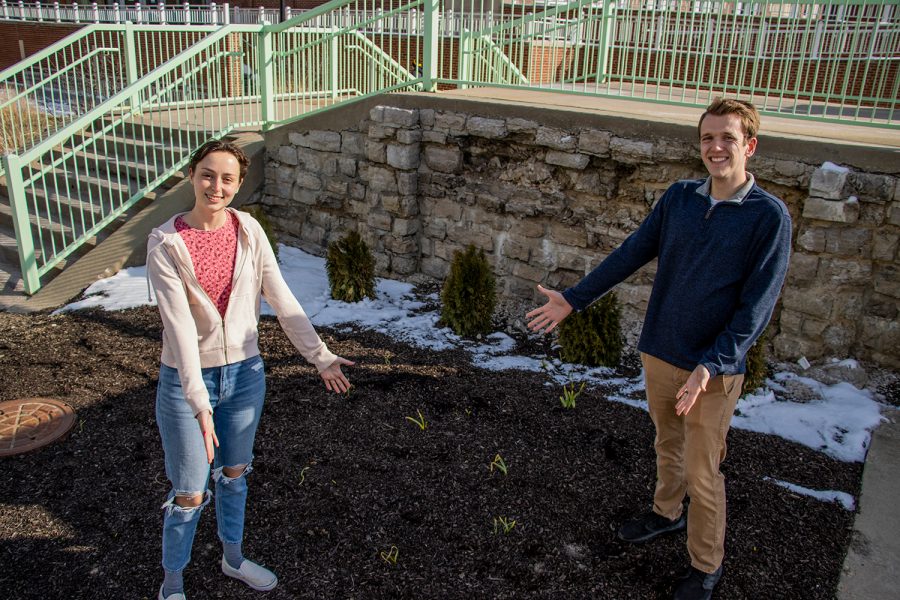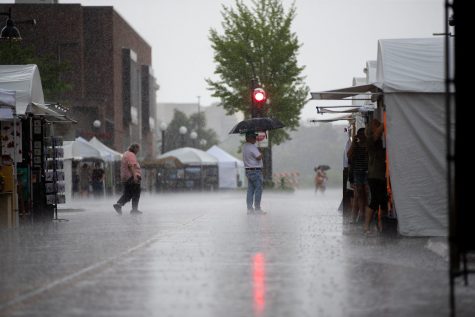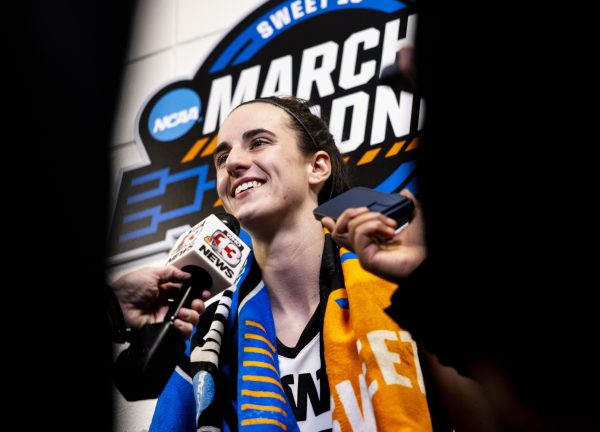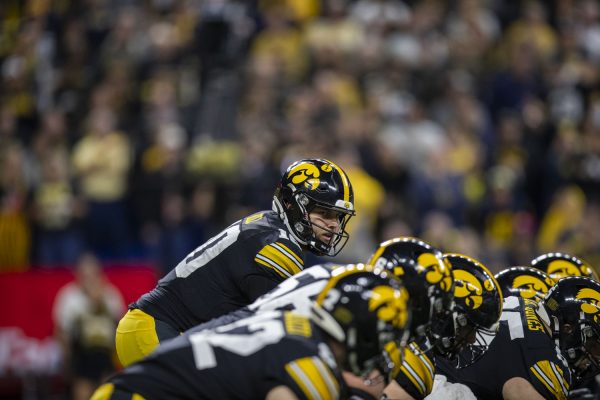University of Iowa USG to plant a pollinator garden on campus for bees
The University of Iowa’s Undergraduate Student Government is asking students to help plant a pollinator garden in late April, to establish the UI as an official Bee Campus.
Libbie Smith, the Director of Sustainability for the University of Iowa Student Government, and Patrick Johnson, a member of the Student Government, show the new spot for a garden that will be planted on April 28, next to the foot bridge on Wednesday, March 9, 2022.
March 9, 2022
The University of Iowa’s Undergraduate Student Government will fund the planting of a pollinator garden in April, to be placed on the north side of the footbridge by the IMU. The garden is a step in the organization’s plan to earn a “Bee Campus” designation.
Patrick Johnson, USG’s director of finance who helped oversee USG’s financial contribution to the pollinator garden, said talk of the garden began back at the beginning of the year, around September.
Johnson said because the market prices fluctuate so often, USG does not know exactly how much the pollinator garden will cost yet but estimated it to be around $950 when including all the plants, materials, deliveries, and other associated costs.
“I signed off on this because overall, it’s a very worthwhile cause and a very good way to invest in the university as a whole and help them work towards that bee campus goal,” Johnson said.
According to Bee City USA’s commitment statement, any campus interested in being recognized as a “Bee Campus” must show initiative to create nest sites for native pollinators, reduce pesticide usage, and increase the number of pollinators on campus, in an effort to conserve these native pollinators.
Bee City USA said this includes, but is not limited to, creating and enhancing pollinator habitats on campus by increasing native plants and providing nest sites, and offering service-learning projects to enhance pollinator habitat.
Some current Bee Campuses within Big Ten universities include the University of Illinois Urbana-Champaign, University of Indiana, and Purdue University.
By planting the pollinator garden on campus, USG director of sustainability Libbie Smith said she believes the garden will help the university accomplish the goal of becoming a Bee Campus.
“Any efforts to aid the pollinators that we have is something that people should do and think about,” Smith said.
Mike Rhinehart, facilities management landscape construction supervisor for UI landscaping services, assisted Smith in creating the garden.
Rhinehart suggested it to replace a rain garden USG had previously considered, which the university already has. Rhinehart said another rain garden wouldn’t help meet the standards to conserve native pollinators and become a “Bee Campus” as efficiently as the pollinator garden.
Additionally, Rhinehart said he had success with pollinator gardens on campus in the past and wants to place the new pollinator garden north of the IMU footbridge, right across from the pollinator garden on the south side of the footbridge, which was planted in 2018.
He said this is because the gardens attract a variety of bees, butterflies, and other native pollinators who thrive off of plants like butterfly weed.
“The first one we did on the west side of the IMU, we had Monarch caterpillars eating the butterfly weed and changing to adults just months after it was planted,” Rhinehart said. “And of course, all kinds of different bees too.”
Rhinehart said that along with butterfly weed, the garden will include calamint, pale coneflower, and black-eyed Susan plants.
The pollinator garden will be planted on April 28 at 9 a.m., and UI students can volunteer to help.
“It’s hopefully going to bring awareness about the importance of sustainability efforts, no matter how small they are, and it’s going to look nice, so you could consider that a plus as well,” Smith said. “Having native plants for our pollinators in this state is so important.”














